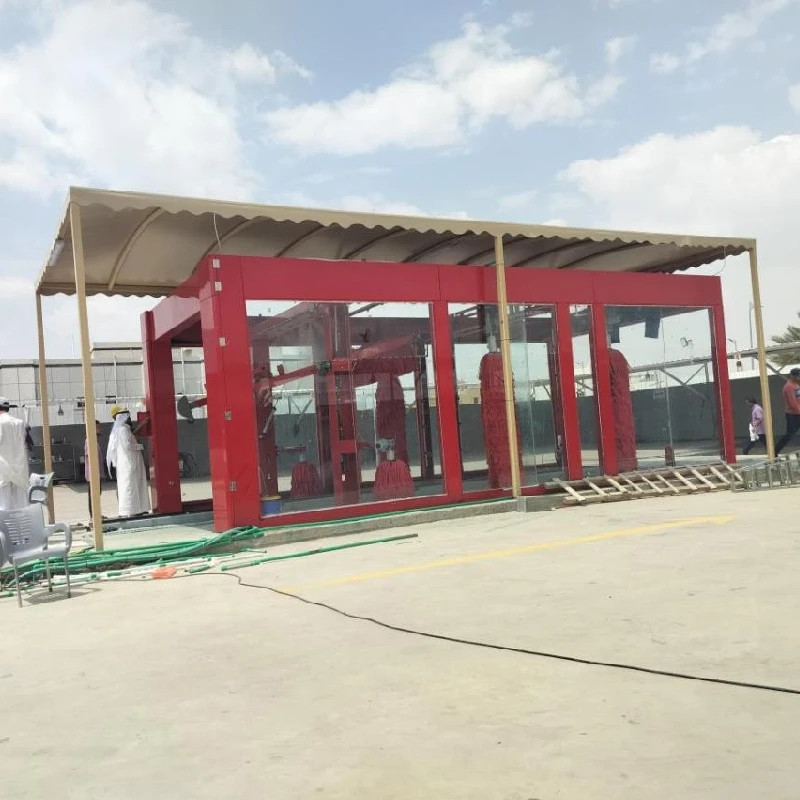Car Wash Tunnel Design for High Throughput, ROI & Uptime
Car Wash Tunnel Design is a key solution in the manufacturing industry, specifically within Special Equipment Manufacturing Industry and Manufacturing of car washing equipment. This article explores how Xingtai Dingyuan Energy Saving Technology Development Co., Ltd. supports professionals with durable, high-performance products, and explains why this product is an ideal choice for businesses in these sectors.

Table of Contents
- Car Wash Tunnel Design Overview
- Benefits & Use Cases of Car Wash Tunnel Design in Manufacturing of car washing equipment
- Cost, Maintenance & User Experience
- Sustainability & Market Trends in manufacturing
- Conclusion on Car Wash Tunnel Design from Xingtai Dingyuan Energy Saving Technology Development Co., Ltd.
Car Wash Tunnel Design Overview
Car Wash Tunnel Design refers to the engineering, layout, and integration of conveyorized washing equipment, chemistry, water systems, and controls to achieve high-throughput, consistent vehicle cleaning. In the Special Equipment Manufacturing Industry, it is a cornerstone of modern service operations, enabling predictable cycle times, repeatable quality, and safe vehicle handling. A typical tunnel layout may incorporate pre-soak arches, foam applicators, mitter curtains or top brushes, side brushes, high-pressure modules, rinse arches, wax or sealant application, and multi-stage blowers, all managed by PLC/HMI controls with VFDs for energy optimization. Materials such as hot-dip galvanized or stainless-steel frames and closed-loop chemical dosing ensure durability and stability.
- In manufacturing of car washing equipment, the design process balances throughput, bay length, water/power availability, and site constraints to optimize operational efficiency and user safety.
- Technical specs commonly include modular conveyors, scalable arch arrays, intelligent sensors for vehicle profiling, and reclaim-ready plumbing to support sustainability goals and smooth integration.
- Xingtai Dingyuan Energy Saving Technology Development Co., Ltd. offers the DY-QC-9 tunnel solution with robust construction, precise control, and a manufacturer-backed configuration service that aligns with B2B performance targets.
Benefits & Use Cases of Car Wash Tunnel Design in Manufacturing of car washing equipment
In practice, Car Wash Tunnel Design empowers operators across stand-alone wash sites, dealership service lanes, rental car depots, fleet depots, and mixed-use fuel/retail locations. The modular architecture supports friction, hybrid, or high-pressure configurations depending on soil load and brand positioning. For B2B operators, the ability to tune chemistry, brush pressure, and conveyor speed helps deliver consistent shine and dry results while minimizing rework. When assessing the car wash tunnel system price, decision makers should weigh not just hardware, but also bay preparation, utilities, chemical program, training, and after-sales support—factors that determine real-world profitability. Competitive advantages include smart controls for recipe management, quick-change brush assemblies, corrosion-resistant frames, and safety interlocks to protect vehicles and staff.
- Applications span express exterior tunnels prioritizing throughput, to full-service lanes where detailing and upsells require precise sequencing and reliable dwell times.
- Against other car wash tunnel manufacturers, Xingtai Dingyuan Energy Saving Technology Development Co., Ltd. differentiates with energy-saving engineering, configurable modules, and professional commissioning that shorten ramp-up time.
- The company’s sector expertise ensures that tunnels are engineered for consistent output, simplified operator training, and integration with payment/loyalty systems for better customer lifetime value.
Cost, Maintenance & User Experience
Total cost of ownership (TCO) in Car Wash Tunnel Design includes acquisition cost, installation/site works, utilities (water, electricity, air), chemical program, consumables, labor, and preventive maintenance. While the car wash tunnel system price is a starting point, lifetime value is driven by uptime, cycle efficiency, and ticket average. Xingtai Dingyuan’s approach focuses on rugged frames, protected bearings, VFD-driven motors, and accessible service points to reduce unplanned downtime and extend component life. Standardized parts and clear maintenance schedules (daily rinse-downs, weekly brush inspection, monthly lubrication and sensor checks) help keep operating costs predictable.
- Owners report smoother onboarding for attendants due to intuitive HMI screens, recipe presets, and guided diagnostics that speed troubleshooting and reduce training time.
- From a user experience standpoint, consistent cleaning, gentle paint interaction, and superior drying improve satisfaction scores, loyalty enrollment, and repeat visits—direct drivers of ROI.
Sustainability & Market Trends in manufacturing
Sustainability is reshaping tunnel specifications. Water reclamation with multi-stage filtration, efficient nozzle arrays, and variable-frequency drives are increasingly standard to help meet regional regulations and reduce per-car resource intensity. Chemical management—via accurate dosing and biodegradable formulas—lowers environmental impact and operating cost. Emerging market trends include compact express tunnels for urban lots, data-enabled maintenance that anticipates part replacement, and integration with mobile membership platforms to stabilize demand curves. As environmental standards evolve, manufacturers who design for reclaim readiness, leak prevention, and smart energy profiles will lead the category.
- Xingtai Dingyuan Energy Saving Technology Development Co., Ltd. engineers tunnels with energy-conscious drives, reclaim-compatible plumbing, and durable materials—helping operators align with sustainability initiatives without sacrificing performance.
- The company’s forward-thinking Car Wash Tunnel Design philosophy reduces resource use per wash and supports compliance readiness, positioning operators for long-term growth.
Conclusion on Car Wash Tunnel Design from Xingtai Dingyuan Energy Saving Technology Development Co., Ltd.
Car Wash Tunnel Design is pivotal to operational excellence in the Special Equipment Manufacturing Industry, enabling high throughput, consistent results, and strong customer satisfaction. From modular layouts to energy-saving drives and reclaim-ready systems, Xingtai Dingyuan Energy Saving Technology Development Co., Ltd. delivers durable, high-performance solutions that meet B2B targets for uptime and ROI. Choose a partner that understands price drivers, lifecycle costs, and sustainability—to future-proof your investment.
- Contact us: email: 626698292@qq.com
- Visit our website: https://www.dycarwasher.com
-
Car Wash Equipment – Durable, Efficient, Pro-Grade SystemsNewsNov.10,2025
-
automatic car washing machine price list: Fast ROI, Low CostNewsNov.10,2025
-
Car Wash Tunnel Design | High Throughput & Low MaintenanceNewsNov.10,2025
-
Automatic Car Washing Machine Price List - Fast ROINewsNov.10,2025
-
Car Wash Tunnel Design: High Throughput, Custom & DurableNewsOct.27,2025




